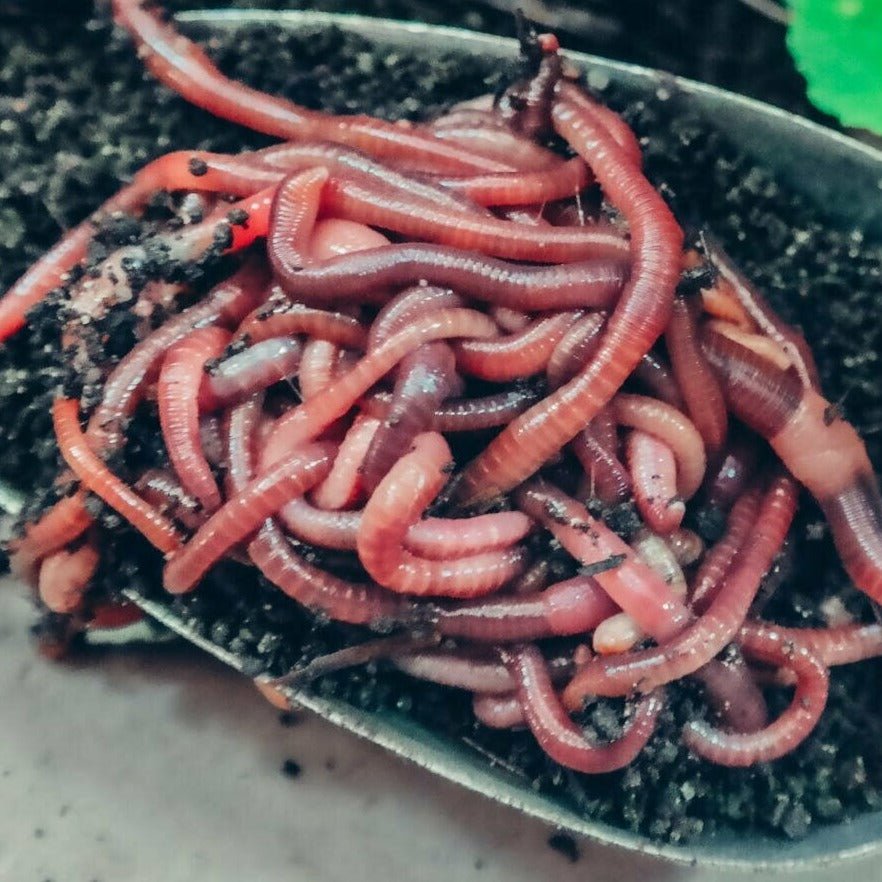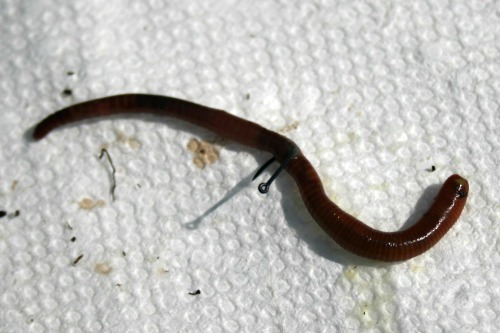Red Wigglers 101: Every Little Thing You Required to Know for Thriving Gardens
Red wigglers, or Eisenia fetida, play a crucial function in lasting horticulture practices, working as effective decomposers that transform organic waste into beneficial vermicompost. Understanding their habitat, nutritional preferences, and the myriad benefits they provide can transform your gardening approach (Red Wiggler Express). As these worms prosper in particular conditions, their care and administration are important for maximizing their contributions to soil wellness. The concern remains: what actions can you require to harness the full possibility of these remarkable microorganisms in your very own garden?
Comprehending Red Wigglers

Red wigglers flourish in settings rich in organic product and wetness. Red Wiggler Express. They have a distinct digestion system that permits them to refine food scraps quickly, excreting castings that are packed with vital nutrients such as nitrogen, phosphorus, and potassium. These castings improve dirt framework, improve water retention, and foster beneficial microbial activity, all of which add to durable plant health and wellness
Furthermore, red wigglers can survive in diverse problems, making them adaptable to numerous gardening methods, including interior and exterior composting systems. Their ability to consume big quantities of natural waste daily positions them as useful allies for both home garden enthusiasts and business growers. By integrating red wigglers right into horticulture initiatives, one can significantly boost soil fertility and support sustainable gardening practices.
Perfect Habitat for Red Wigglers
Producing an optimum atmosphere for red wigglers is essential for optimizing their composting capacities and overall health and wellness. Red wigglers grow in damp, dark, and well-aerated environments, which carefully resemble their native environments in ground cover and rotting raw material. An appropriate habitat ought to provide a temperature level range between 55 ° F and 77 ° F(13 ° C to 25 ° C), as extreme temperatures can emphasize or hurt the worms.
The bed linen material, such as shredded newspaper, cardboard, or coconut coir, need to be maintained moist yet not extremely wet, as extreme dampness can bring about anaerobic problems harmful to worm wellness. In addition, a pH degree in between 6.0 and 7.5 is ideal, making certain a well balanced atmosphere.
Appropriate oygenation is equally vital; it enables oxygen flow and prevents the buildup of harmful gases. A container or container developed for vermicomposting must have drainage openings to get rid of excess moisture and promote airflow. Regular tracking of these conditions is important for preserving a thriving red wiggler population, eventually improving their effectiveness in damaging down organic waste and enhancing yard soil.
Dietary Demands and Preferences

Red wigglers exhibit certain preferences; they are specifically keen on softer, breaking down materials over more difficult or even more fibrous materials. It is important to prevent feeding them citrus peels, onion, and garlic in big quantities, as these can be harmful. Furthermore, meat, milk, and oily foods must be excluded, as they can draw in bugs and produce undesirable odors.
(Red Wiggler Express)Green materials, such as veggie scraps, provide nitrogen, while brown materials, like cardboard and dried leaves, supply carbon. By providing to their nutritional needs, gardeners can promote a prospering populace of red wigglers in their garden compost systems.
Advantages of Making Use Of Red Wigglers
The remarkable advantages of making use of red wigglers in horticulture expand much past their duty in composting. These functional microorganisms contribute significantly to soil health, enhancing nutrition accessibility and promoting microbial activity. By aerating the dirt as they tunnel, red wigglers improve drainage and root infiltration, developing an ideal atmosphere for plant development.
Furthermore, red wigglers are efficient recyclers of natural waste, transforming it into nutrient-rich spreadings that offer as a superb natural fertilizer. These spreadings consist of valuable microbes and necessary nutrients, such as nitrogen, phosphorus, and potassium, which are crucial for plant development. The image source slow launch of nutrients from worm spreadings guarantees a stable supply, minimizing the threat of nutrient leaching and advertising sustainable horticulture techniques.
Using red wigglers fosters a much more lasting horticulture strategy by reducing dependence on chemical plant foods and advertising a closed-loop system, where waste is changed right into important sources. Overall, incorporating red wigglers into gardening techniques offers a wide variety of environmental and farming advantages.
(Granite Falls NC Worms For Sale)
Composting With Red Wigglers

To launch a successful vermicomposting system, choose a suitable container with correct air flow and drainage. The optimal setting for red wigglers consists of a damp, dark setup with temperature levels between 55 ° F and 77 ° F. Begin by layering shredded paper, cardboard, and food scraps, making sure a well balanced mix of carbon and nitrogen-rich products.
Red wigglers flourish on veggie peels, fruit scraps, coffee premises, and eggshells, while staying clear of meat, milk, and oily foods that can attract bugs. Regularly keep an eye on dampness degrees; the bedding should be damp but not soggy. Harvest worm spreadings every couple of months by dividing the worms from the garden compost, which can then be used directly in gardens or stored for later usage.
Carrying out vermicomposting not just lowers land fill waste but additionally enhances garden soil, promoting healthy and balanced plant development and lasting horticulture techniques. Welcome this environmentally friendly method to enhance your horticulture undertakings.
Conclusion
In summary, red wigglers are important microorganisms for improving garden efficiency through effective composting. By utilizing red wigglers, gardeners can dramatically improve dirt quality and nutrient accessibility, fostering healthier plant development.